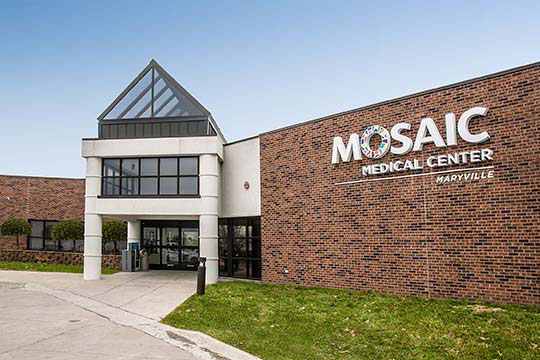 By Bridget Kenny, Mosaic Medical Center – Maryville community health nurse liaison
By Bridget Kenny, Mosaic Medical Center – Maryville community health nurse liaison
March is considered a wonderful month for so many reasons. We start to get teasers of the warmth of the spring season. I know this tends to improve my demeanor. For those of us who enjoy the game of basketball, we get to follow our favorite teams to the finals during March Madness. Some religious faiths observe Lent – the weeks leading up to Easter – which provides a period of prayer, fasting and reflection. St. Patrick’s Day offers the world an opportunity to celebrate the saint who provided religious insight to others using the three leaves of the shamrock to help signify the Holy Trinity – the father, the son and the holy spirit. The first St. Patrick’s Day parade on record took place in Florida in 1601.
In healthcare, March is colorectal cancer awareness month. Ranking third in highest incidence of cancer-related deaths in the United States, colorectal cancer is also one of the most preventable and treatable cancers when detected early. Latest statistics show approximately 1 in 23 men and 1 in 25 women in the US will develop colon cancer this year for a total estimate of 150,000 new cases. The national average reports an incidence of 38.7 people per 100,000. Although on a slow trend downward for those over 50 years of age, the incidence per 100,000 of Nodaway County residents is higher at 42.5.
As Mosaic Medical Center – Maryville’s community health nurse liaison, I would like to provide education so you can improve your chances of preventing colorectal cancer. Prevention is the best way to protect oneself. Hopefully, you find the information helpful.
Studies show there are certain groups of people who are at greater risk. Looking at the risk factors, it is no wonder the incidence in our community is higher than the national average. Some potential determinants cannot be changed, such as family history or genetic makeup, inflammatory bowel disease, ethnicity and age. However, there are other factors we can influence to decrease our individual risk. Being overweight or obese, decreased physical activity, diets high in red meat and processed meats, cooking meat at high temperatures such as frying, grilling and broiling, smoking, consumption of sugary drinks and alcoholic beverages, as well as large dietary portion sizes, are all risk factors that can be controlled.
I am personally surprised to learn the way that we prepare meat can increase the carcinogens we introduce into our body. March is about the time of year that my family likes to “break out” the grill for the year. As a matter of fact, we prefer to cook outside when the weather allows, and it seems many of our neighbors do as well.
Based on Nodaway County statistics, this is not the only factor I have in common with my community members. Of the adult population, 36 percent are obese which does not include those who are overweight with less than 30 BMI, 24 percent do not engage in regular physical activity measured by increased heart and respiratory rate, and 19 percent drink alcohol in excess. According to the National Institutes of Health, low vitamin D levels have been linked to increased incidence of colorectal cancers. Consequently, 50 percent of the adult population will test low for vitamin D.
Our risks of colorectal cancer are significantly less if we focus on our overall health and follow our physician’s recommendations for screening. We can start by eating appropriate portions of food with a focus to fill at least one-half of our plate with fruits and vegetables. Lean meats, poultry and fish tend to be the better options for avoiding carcinogens. As a general rule, choose the whole-grain option when possible and take vitamin supplements if needed.
The current recommendation is to schedule a colonoscopy screening test at age 45 or earlier if there is a family history of colorectal cancer. According to evidence-based data, getting your screening can reduce the risk of death from colon cancer by upwards of 90 percent.
Please feel free to contact me at 660.562.7945 if you have any additional questions.




Facebook Comments